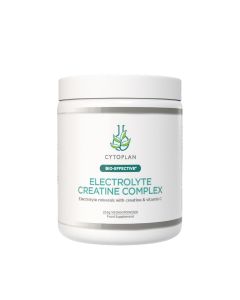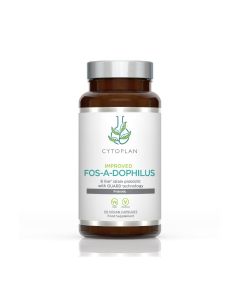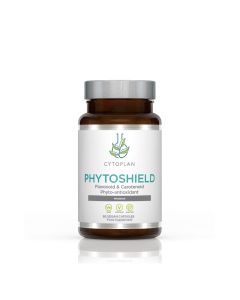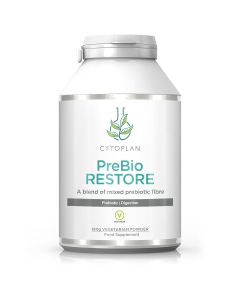Are gut shots healthy and can they boost immunity?
You can’t walk down the aisles of your local supermarket without encountering a plethora of products claiming to support a healthy gut. “Gut health” is emerging as a buzzword in the health and wellness field, but really, it’s nothing new – in fact, over 2000 years ago, Hippocrates suggested that all disease begins in the gut – and modern medicine continues to confirm that he knew his stuff!
There is an enormous amount of scientific literature that links our gut health to our overall health and well-being – and poor gut health has been associated with almost every health concern you can think of – so it is unsurprising that the food and drink industry is cottoning on, and so called “gut shots” are flying off the supermarket shelves.
While, in our modern, busy lifestyles it’s tempting to reach for a product that appears to provide a whole host of nutritional benefits in one, easy to grab bottle – but let us have a closer look at the science and see if “gut shots” are all they are cracked up to be.
What is our microbiome?
Gut shots claim to support the health of your microbiome – but what exactly is the microbiome and how does it affect our health and immunity?
There are approximately 100 trillion microbes in the human gut (!) and this is what is often referred to as our gut flora, microflora or microbiome. The gut houses a complex ecosystem where our gut flora, nutrients and our own cells should co-exist in a harmonious, balanced relationship: we provide nutrients for the microbes and in return they help us maintain good gut, and overall health.
Beyond the gut, our microbiome supports many essential processes throughout the body. It can assist in our digestion, vitamin production, resistance to pathogens, production of metabolites such as hormones and neurotransmitters, and, importantly, plays a pivotal role in our immune health. Our microbiome’s key role in immunity is unsurprising when we consider that more than 70% of immune cells are actually located in the gut!
What can affect our microbiome?
Unfortunately, in our modern western society, there are many factors that can disrupt the balance of our microbiome. This may be poor food choices, medications such as antibiotics, pollution and even lifestyle factors such as lack of exercise and chronic stress – and with this in mind, many of us could benefit from focussing on supporting our gut health – but are gut shots the answer?
Let’s have a look at the pros and cons of gut shots…
Pros
- Nutrition – many gut shots can provide a great source of live bacteria, and some contain other health-promoting nutrients such as polyphenols from fruit, and prebiotics such as chicory and inulin
- Convenience – grabbing a little bottle from the fridge is certainly easier than making dietary changes
Cons
- Cost – retailing at up to £2 per bottle, if you took a gut shot daily it would cost far more than implementing pre and probiotic foods, or even a multi-strain probiotic supplement into your routine – which are likely to bring greater health benefits
- Sugar – some gut shots are sweetened with sugar, or naturally contain high levels of sugar, which can exacerbate an imbalance in the microbiome
- Levels of nutrients – while gut shots undoubtedly do provide a range of gut-loving nutrients, on the whole the levels are far less than a healthy, balanced diet can provide
- Environmental impact – how does a daily plastic bottle sit within our desire to reduce single use plastic?
In summary, while gut shots may give you many health promoting properties – they may not be the “miracle cure” that they are marketed to the public as, and by making some dietary changes you can help to support your gut and overall health in a more meaningful way.
How to support your gut health microbiome naturally
Eat a wide variety of minimally processed plant foods
A diverse diet will support a diverse microbiome, and it is this diversity that is key to optimal health. You should aim to eat at least 30 different plant foods, or a wide spectrum of different colours (eat a rainbow!), each week. Not only will this support your microbiome, but you will also be getting a wide range of protective phytonutrients to support optimal health. From colourful crudites, to crunchy salads or comforting soups – try to incorporate more veggies into all your meals and snacks.
Get plenty of prebiotics
These specific types of fibre can provide an energy source for our microbiome and support diversity in our gut. The easiest way to up your prebiotics is to include a diverse range of plant foods (see above) but foods that are particularly rich in prebiotics include chicory root, Jerusalem artichokes, garlic, onions, leeks, asparagus and oats.
Include naturally probiotic foods in your diet
Fermented foods provide a rich source of natural probiotics which can help to support a healthy gut and have far-reaching health benefits. Excellent foods include natural live yoghurt, kefir, sauerkraut, kimchi, tempeh, miso, and kombucha. Lots of these wonderful probiotic foods are becoming much easier to source in the supermarkets, and you can actually ferment most vegetables to create your own probiotic foods – and even better, you can strain the liquid to make your own gut shots!
Focus on polyphenols
Polyphenols are a type of phytonutrients with prebiotic properties, which have been shown to inhibit pathogenic bacteria and promote the growth of friendly bacteria in the gut. Rich sources of polyphenols include fruits and vegetables of a range of colours, nuts, seeds, legumes, herbs and spices – so again, we see that eating a range of different plant foods is key to gut health! Polyphenols can also have an antioxidant action to protect our cells from damage and support against a number of health conditions.
Foods to avoid for good gut health
The typical Western diet; energy dense, high in animal protein, total and saturated fats, processed foods and added sugars, but low in plant foods is associated with poor gut health as well as an increased risk of chronic disease. Artificial sweeteners, commonly found in “sugar free” foods have also been shown to disrupt the microbiome.
Making lifestyle changes can help your microbiome
Increasing our contact with nature, regular exercise and ensuring quality sleep have all been shown to have benefits to our microbiome and gut health. Likewise, smoking, pollution, stress, a sedentary lifestyle and the overuse of antibacterial products can all negatively affect the microbiome, so should be avoided.
Take a probiotic supplement
A balanced, multi-strain probiotic supplement can offer extra support alongside these dietary changes, particularly if you experience digestive discomfort.









